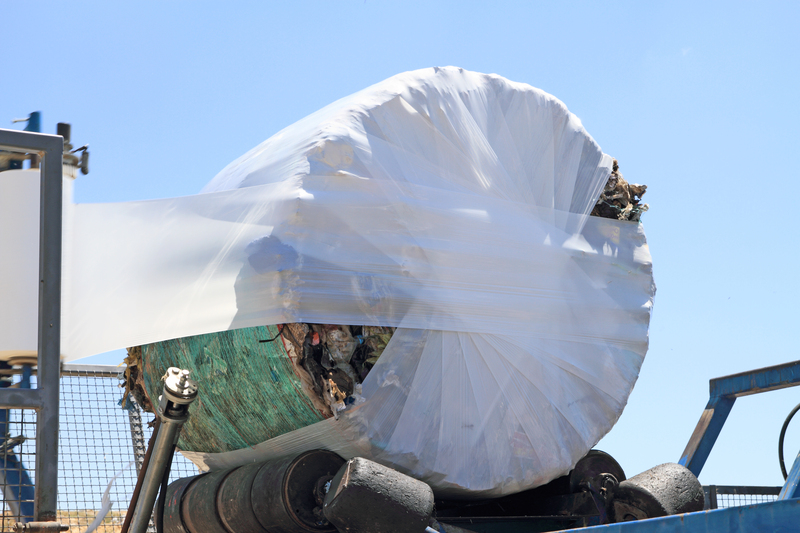
Understanding the Importance of Recycling Metals
In our quest for a greener future, recycling plays a pivotal role. Among the materials that demand our attention, metals stand out due to their wide usage and environmental impact. By exploring why recycling metals is crucial, we can better appreciate the need for sustainable practices and encourage others to do the same.
The Environmental Impact of Metal Extraction
The process of extracting raw metals from the earth is not only labor-intensive but also environmentally taxing. Here's how:
1. Resource Depletion
- Mining operations significantly contribute to the depletion of natural resources. As the demand for metals increases, the strain on our planet's finite resources grows.
2. Energy Consumption
- Extracting metals from ores is an energy-intensive process. The electricity required in these operations often comes from non-renewable sources, exacerbating our carbon footprint.
3. Pollution and Ecosystem Damage
- Mining activities lead to habitat destruction, soil degradation, and water contamination. These activities threaten biodiversity and disrupt local ecosystems.
- Additionally, waste from metal production often includes harmful chemicals and emissions.
The Benefits of Recycling Metals
By recycling metals, we can mitigate many of the environmental damages associated with mining and raw material extraction. Here are some compelling reasons why metal recycling is vital:
1. Conserving Natural Resources
- Recycling helps conserve the earth's finite metal resources, ensuring future generations have access to essential materials.
2. Reducing Energy Usage
- The energy required to recycle metals is substantially less than that needed for their primary production. For instance, recycling aluminum saves up to 95% of the energy compared to producing it from raw bauxite.
3. Minimizing Pollution
- Metal recycling produces far less waste and emissions. By using recycled materials, factories can reduce air and water pollution dramatically.
Common Metals and Their Recycling Processes
Various metals are recycled daily, each with unique processes and benefits:
1. Aluminum
Aluminum is highly reusable; infinite recyclability makes it a cornerstone of sustainable materials. Commonly recycled aluminum products include beverage cans and foils.
2. Steel
Steel is among the most recycled materials globally, thanks to the ease of extracting it from waste using magnets. Recycling steel significantly reduces environmental impact, conserving iron ore and cutting CO2 emissions.
3. Copper
Known for its excellent conductivity, copper is routinely recycled from electrical wiring and plumbing pipes. Recycling copper preserves natural resources and reduces the demand for new mining projects.
The Economic Advantage of Metal Recycling
The benefits of metal recycling extend beyond environmental protection; they also present significant economic advantages:
1. Cost Savings
- Recycling typically involves lower costs compared to extracting and processing new materials, which can result in savings that are passed on to consumers.
2. Job Creation
- The recycling industry provides numerous jobs in collecting, processing, and selling recycled materials, contributing to the overall economy.
Challenges in Metal Recycling
Despite the clear benefits, metal recycling still faces several challenges:
1. Collection and Sorting
- Efficient recycling relies on effective collection and sorting of materials. Mixed waste and improper disposal can hinder recycling efforts.
2. Quality Concerns
- The presence of impurities can affect the quality of recycled metal. Ensuring purity is essential for maintaining the integrity of recycled products.
Steps to Improve Metal Recycling Rates
Enhancing our metal recycling efforts involves several strategic actions:
1. Public Awareness and Education
- Educating communities about the importance of recycling metals and effective recycling practices can lead to increased participation.
2. Improved Infrastructure
- Investing in better recycling facilities and technologies can enhance the efficiency of sorting and processing recycled metals.
Conclusion: A Call for Action
As we strive towards a more sustainable future, metal recycling must become a cornerstone of our environmental strategies. By understanding its importance and addressing its challenges, we can significantly reduce our ecological footprint. It's time for individuals, industries, and governments to take action, champion recycling initiatives, and work towards a healthier, greener planet.
With this comprehensive approach, we can not only conserve our precious natural resources but also ensure a vibrant future for generations to come. Let's recycle metals and pave the way for a sustainable tomorrow.
